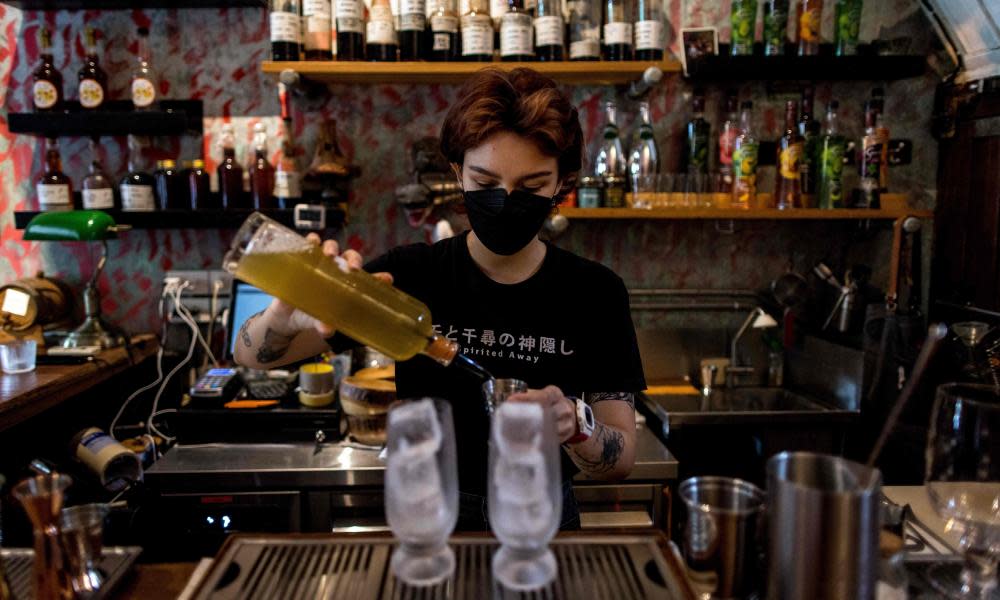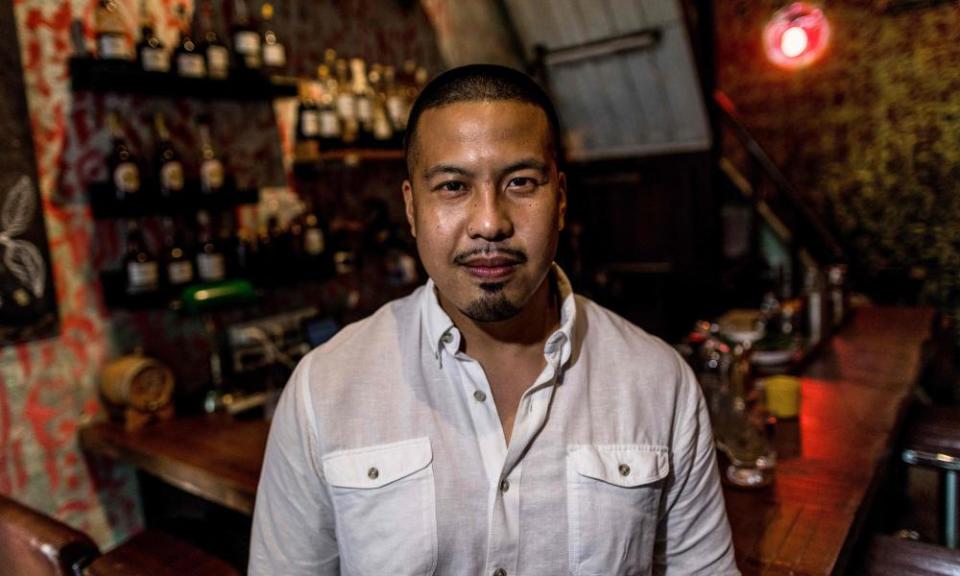Businesses in Thailand urge government to reverse alcohol ban

Businesses in Thailand have urged the government to lift restrictions on alcohol sales as the country reopens to tourists, warning the measures are destroying its famous nightlife and risk deterring visitors.
Thailand plans to reopen its borders to fully vaccinated travellers from 45 countries on 1 November, after 18 months of restrictions that have devastated its tourism industry. Just weeks before the reopening, many bars, clubs and restaurants are closed or struggling to survive.
The government banned the sale of alcohol in restaurants, and closed bars, to dissuade people from going out after a rise in Covid cases in April, which was linked to clusters at nightclubs. Nightlife venues are still shut, while restaurant rules vary by area.
The rules have caused “catastrophic damage” to the nightlife sector, said Niks Anuman-Rajadhon, owner of Teens of Thailand, a bar in the capital’s Chinatown.

He has searched for novel ways to generate income, including opening as a cafe and selling mocktails made with kratom, a leaf from the coffee family that acts as a stimulant and was recently decriminalised in Thailand. Profits have still fallen dramatically, he said. “We manage around 15% of what we used to get pre-Covid … There is next to nothing in compensation.
“It’s sad to see what’s happening around the world and [to compare this with] what’s happening in Thailand,” he said, adding that Thailand’s alcohol policy was unusually strict. “It doesn’t look like we’re in the same world.”
Some restaurants and bars are flouting the restrictions, and have resorted to discreetly serving alcohol disguised as soft drinks.
Related: Thailand: Bangkok warehouse turned into 1,800-bed hospital as Covid crisis worsens
A curfew will be lifted in areas such as Bangkok at the end of the month, while the prime minister, Prayuth Chan-ocha, said the sale of alcohol in restaurants, and the opening of entertainment venues, would be considered by 1 December.
Nightlife businesses say they need clarity and a faster rule change, so that venues and bars have time to recruit staff and prepare for a return to business.
Taopiphop Limjittakorn, an MP for the opposition Move Forward party, who has called for alcohol restrictions to be relaxed, said he feared the first wave of tourists may be surprised to find many nightlife venues closed. “It’s not going to be a successful campaign at all for the reopening of the country. It will further damage our reputation,” he said.
Helping businesses safely reopen should be a priority, he said. “Let’s say, ‘OK, maybe we [can] have social distancing for the bars and maybe limit people in the bars so it’s not too crowded,’” he said.
Related: Infectious nightclubs: Covid outbreaks serve as risk alert
Marisa Sukosol Nunbhakdi, president of the Thai Hotels Association, fears restrictions on alcohol sales could put off tourists. “People do come here for entertainment or just to relax, and [alcohol] is a part of many cultures, especially in Europe,” said Marisa. Allowing consumption in hotels could be a starting point, she said.
Businesses are not expecting large numbers of visitors to arrive in November, she said, but she hopes arrivals will pick up once airline capacity is expanded and the rules for reopening businesses become clearer. “It’s giving hope. We are finally seeing that light at the end of the tunnel,” she said.
Thailand welcomed as many as 40 million international visitors a year before the pandemic, with the tourism industry contributing up to 20% of GDP. Last year, when travel abruptly halted, the country lost about $50bn (£36bn) in tourism revenue.

Roughly 50% of hotels have been closed during the pandemic, according to Thai Hotels Association, with businesses in areas that are highly dependent on international tourism, such as Phuket, Chaing Mai and Pattaya, worst affected. “Whether or not those hotels come back is questionable,” said Marisa.
According to the Chiang Mai Restaurant and Bistro Association, half of its members have closed. Businesses have been unable to sell alcohol for the past two months, after a rise in Covid cases.
To travel to Thailand from 1 November, tourists will need to be fully vaccinated, test negative for Covid before and after arrival, and spend their first night at a hotel that meets government requirements. They will also need to have Covid insurance cover of at least $50,000.
Just under 40% of Thailand’s population is fully vaccinated. Cases have fallen after a peak in August, with fewer than 10,000 infections recorded a day over the past week.


